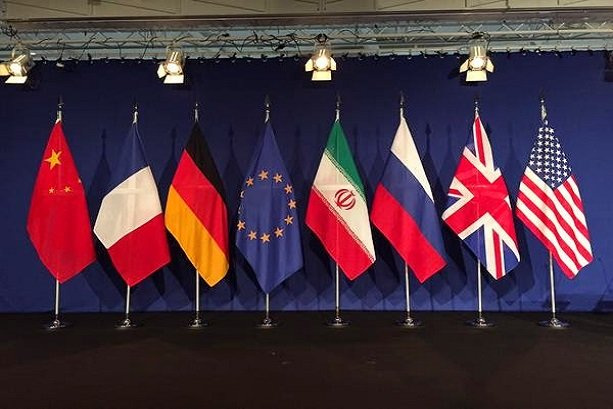Quitting the JCPOA Is Iran's Final Scenario, Says Atomic Energy Head Ali-Akbar Salehi

By Maryam Salari & Shahrokh Saei
Since Donald Trump launched his presidential campaign, he seized every opportunity to rail against the 2015 Iran nuclear deal known as the Joint Comprehensive Plan of Action (JCPOA). He called the agreement “the worst deal ever”. Finally on May 8, Trump officially announced that Washington was withdrawing from the internationally-recognized accord. Iran, however, has remained committed to the JCPOA as the remaining signatories have pledged to adopt measures to help Tehran benefit from the deal despite the US withdrawal.
Iranian officials say the Islamic Republic may abandon the JCPOA if other sides fail to fulfill their promises.
In an interview with Iran Daily, Head of the Atomic Energy Organization of Iran Ali Akbar Salehi said Iran’s pull out of the JCPOA will work to the detriment of all sides.
Excerpts from the interview follow:
IRAN DAILY: US President Donald Trump withdrew Washington from the JCPOA in May. However, Iran has remained committed to its obligations since the deal was signed in 2015. What goals is the Trump administration trying to achieve by quitting the accord?
SALEHI: Donald Trump took the helm of the Oval Office when Iran had been able to resist against US pressures and sanctions since the 1979 Islamic Revolution.
The US president not only attempts to break this resistance but also leaves no stone unturned to destroy the achievements of his predecessor Barack Obama who managed to reach the nuclear deal with Iran, restore diplomatic relations with Cuba and take major steps in the global efforts to combat climate change.
Trump has always branded the JCPOA as a bad deal which has failed to meet US demands. Trump wants to sign a new deal because he believes that the JCPOA will enable Iran to achieve its nuclear objectives under the agreement’s clauses known as the “sunset provisions,”— which stipulate the expiry of various restrictions imposed on Iran’s nuclear program.
These are what Trump labels as the deal’s technical faults. In terms of political aspects, Iran’s growing influence in the Middle East runs counter to the interests of US regional allies including, Israel and Saudi Arabia. This is against Trump’s policies and his pro-Israel approaches.
Trump has said that he is ready to hold unconditional talks with Iran. Why does he insist on renegotiating the nuclear deal?
Negotiations between the US and Iran over the latter’s nuclear accord can be very important to the US president. Trump is wide aware of Iran’s considerable clout. Trump knows that he could become a legend if he succeeded in reaching a comprehensive economic and political deal with the Islamic Republic.
If Tehran and Washington held talks over other disputed issues, apart from Iran’s nuclear program, would they be able to settle their differences?
When we started nuclear talks with Americans they were interested in negotiating other issues. But Leader of the Islamic Revolution Ayatollah Seyyed Ali Khamenei banned non-nuclear talks. The leader believed we should not trust the US because it always reneges on its promises. The US pullout of the JCPOA corroborated the Leader’s comments that trusting Washington is a big mistake.
Besides the fact that the Trump administration cannot be trusted, some of the Iranian political groups maintain that Tehran must not hold any talks with the US and regard any negotiations with Washington as “compromise”, what’s your take?
Before the nuclear negotiations began under President Hassan Rouhani’s administration, Ayatollah Khamenei allowed us to talk with the US in periods of time. This included meetings between Iranian and US ambassadors in Baghdad and negotiations between the two countries’ diplomats over the Afghanistan crisis. I also asked the Leader’s permission for holding confidential talks in Oman which led to the signing of the JCPOA.
Recently, the Leader said a meeting between Foreign Minister Mohammad Javad Zarif and then secretary of state John Kerry was a mistake. But, he had earlier allowed confidential negotiations with the Americans.
This is because prior to nuclear talks, the Leader stressed that negotiations with the US should not be held in the level of foreign ministers and we followed the order in the talks in Oman. But Zarif may have been allowed to hold direct talks with his then counterpart. Iran’s foreign minister is not authorized to sit for talks with his American counterparts without the Leader’s permission.
If the nuclear deal reached an impasse, what would be Iran’s post-JCPOA plans? Some of the political groups say the country should quit the NPT. Foreign Minister Zarif has also pointed to this.
As far as I know, Zarif said some groups in the country believe that if the US continues to throw a monkey wrench into the implementation of the JCPOA, Iran should abandon the NPT because the country cannot use its benefits then.
Is pulling out of the JCPOA an option on the table?
This is a major decision which must be taken by the country’s senior officials. The consequences of such a decision is so severe that I don’t want to think about.
We will make due decisions by considering all the necessary aspects.
For instance, the Leader ordered to launch and complete a very advanced unit to build modern centrifuges which has been quipped well.
The Leader has also issued orders to start developing systems for nuclear-powered marine vessels which is a 10-15 year project.
Nonetheless, these measures are in line within the framework of the JCPOA.
Iran can also suspend some of the limitations it accepted under the nuclear deal such as the volume and the level of uranium enrichment.
The final scenario could be abandoning the JCPOA, but I hope that through the cooperation of the remaining signatories to the deal it will never happen. This is because Iran’s withdrawal from the nuclear deal will work to the detriment of all sides.
Source: Iran Daily

